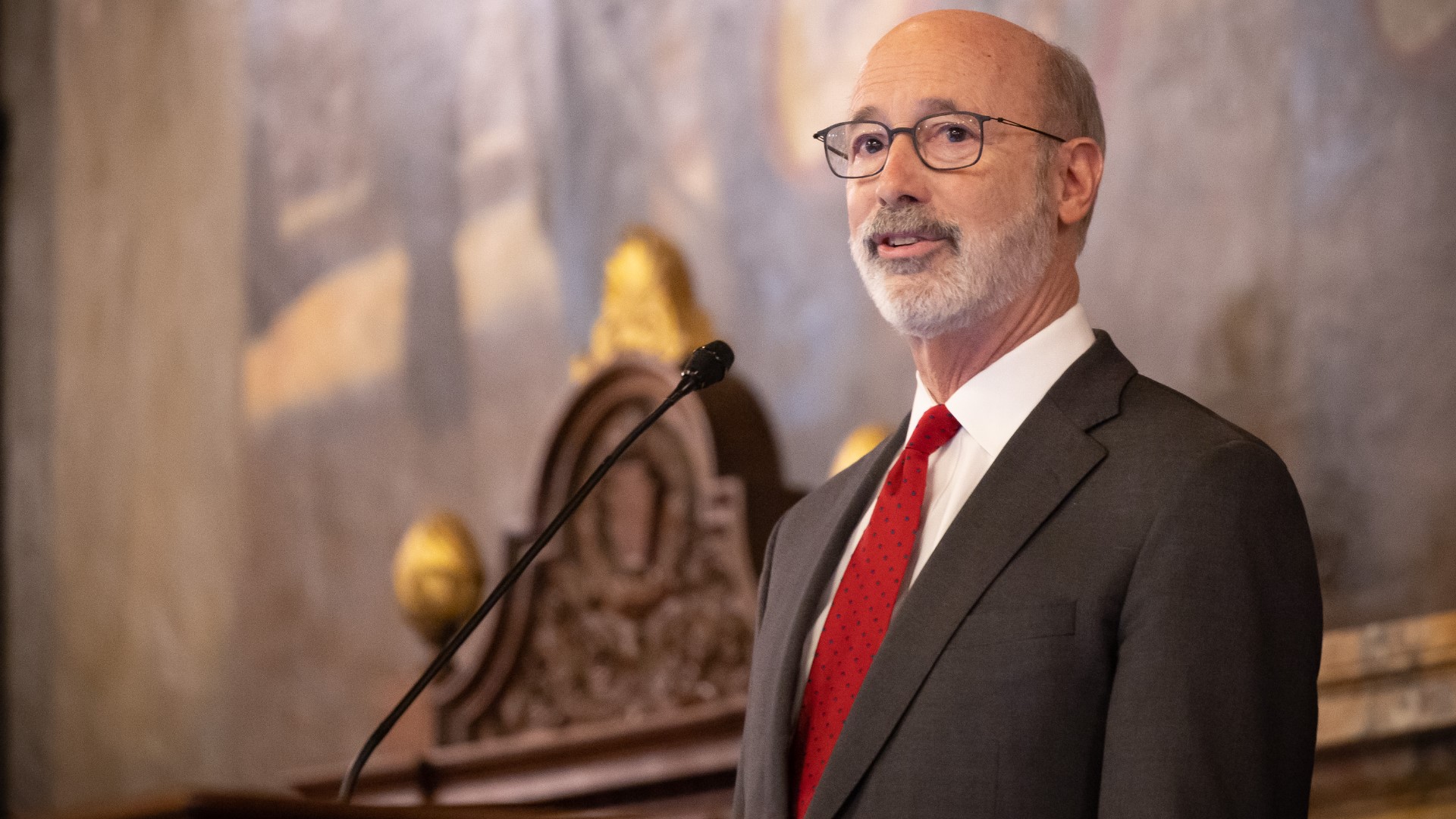HARRISBURG, Pa. — Pennsylvania Governor Tom Wolf issued his final state budget address on Tuesday, kicking off the annual four-month process where he and state Republicans work to slim down a proposal majority-party legislators often view as overreaching.
Wolf's spending plan for the 2022-23 fiscal year comes with a $43.7 billion price tag and a similar focus as previous budgets; increased public education funding and a plan to raise Pennsylvania's federal limit minimum wage.
The Democratic governor, finishing up his second and final four-year term this year, also called on the legislature to lower the corporate net income tax in an effort to make Pennsylvania more appealing to businesses outside the commonwealth.
In doing so, he touted the progress he says his office made in the last seven years, most notably as it relates to the commonwealth's emergency funding account. The account, better known as the Rainy Day Fund, sits at nearly $3 billion, up almost 100% from where it was when he took office.
"We stuck it out, Democrats and Republicans," Wolf said. "We didn't give up on each other. We didn’t give up on Pennsylvania."
Wolf's final budget proposes $1.55 billion in new education spending. It would bring the annual price tag to $11.9 billion in basic education funding, up nearly $4 billion from his first budget. Of that, $1.25 billion would go towards the Fair Funding Formula, which ultimately decides how public schools are funded.
"It promises a child's chance to thrive will not be determined by their zip code," Wolf said of the program.
The governor is also proposing an additional $300 million for the state's Level Up initiative, which focuses on the commonwealth's poorest school districts, and $200 million for special education.
Wolf once again called on the Republican-controlled General Assembly to raise Pennsylvania's minimum wage, which has been stuck at $7.25/hour since 2009. The governor's proposal would immediately raise the wage to $12/hour, going up by $0.50 increments until it reaches $15/hour.
"We are literally surrounded by states that are giving minimum wage workers a better deal," Wolf said. "This is embarrassing. Our failure to increase the minimum wage is costing us dearly. It’s very simple. When people are able to earn a decent wage, they can contribute to the economic life of their communities – and the commonwealth."
The governor, along with Democrats like Harrisburg-area State Rep. Patty Kim, also urged the legislature to spend the $7.3 billion in American Rescue Plan money left over from 2021.
"We have so many post-pandemic issues, whether it be mental health with kids or small business trying to meet their budgets," said Kim. "We have to use this money wisely."
Republicans blasted Wolf's proposal as "reckless" and "irresponsible," accusing him of using inaccurate revenue projections which are $5 billion more than expectations by the non-affiliated fiscal watchdog Independent Fiscal Office.
The majority party also took credit for the increase in education spending over the years – "It takes two to tango," said State Rep. Torren Ecker (R-Cumberland, Adams) – and the increase in Rainy Day Fund spending.
"That kind of spending is disappointing and short-sighted," wrote State Rep. Barb Gleim in a statement (R-Cumberland). "The Commonwealth is on solid financial footing finally because of strong Republican fiscal policy."
Senate President Pro Tempore Jake Corman said the governor's budget is living on Fantasy Island, alluding to the 1970s television drama.
"It looks nice and feels nice but it's not based in reality," Corman said.
Partisanship aside, there is one area the governor proposed which does appear to have the support of some Republicans.
Wolf hopes to decrease the corporate net income tax from 9.9% in 2022 to 5.5% by 2026. The idea is to make Pennsylvania more attractive to businesses and corporations to make their home in the commonwealth.
"This is part of the process," Ecker said. "The governor gives his budget address. He has to sign it. But he has to work with the legislature to get it signed as well."
And there's time to do so. The legislature starts budget hearings on his $43.7 billion proposal next week. Lawmakers return for session in March, and a budget has to be signed for the 2022-23 fiscal year by June 30.

